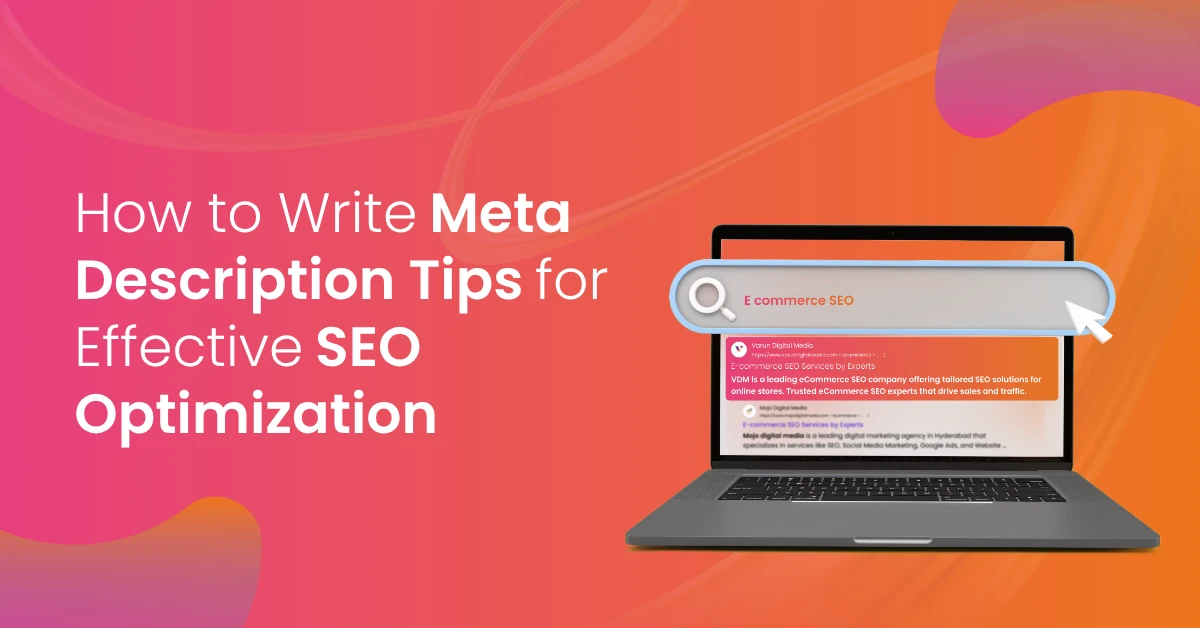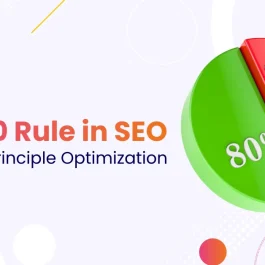4 min read

A meta description is a short summary of a webpage’s content. It shows below the page title in search engine result pages (SERPs). It helps users see what the page is about. Then they decide if they want to click your site. Meta descriptions do not directly affect search rankings. But they help get more clicks and improve your page’s click-through rate (CTR). This short text is your webpage’s first impression in search results. So, you must write it well to attract users.
Table of Contents
Why Are Meta Descriptions Important?
Meta descriptions work like mini ads for your webpage. When you write them well, they give info that matches the user’s search intent. This makes users want to click your link. A good meta description helps your website get more views. It brings more organic traffic. This can help your search rankings over time. Meta descriptions also show in social media previews. This helps you keep a steady brand voice on many platforms. It also makes users want to engage with your content outside search engines.
How to Write Meta Descriptions That Work
1. Keep It Concise and Within Optimal Length
Keep meta descriptions between 150 and 160 characters. This length stops your description from being cut off in Google results. So, users get the full message. Staying in this range lets you give a clear and short summary. It fits well in search engine result pages. If it is too long, it might get cut off. This can confuse or scare away visitors.
2. Use Relevant Keywords Naturally
Put your target keyword or key phrase in the meta description. Do it naturally. This helps Google highlight these words in search results. That makes your listing look better to users. But do not stuff keywords. Focus on writing smooth, easy-to-read text. Make it good for search engines and users.
3. Match the Content Accurately
Make sure your meta description shows what the linked page really has. Do not write misleading descriptions. This can make users leave fast and trust you less. Give a true and exact summary. This sets the right expectations. It makes users happy and they stay longer.
4. Include a Clear Call to Action (CTA)
Add action words like “Learn more,” “Get started,” or “Shop now.” These words push users to click. A good CTA guides users to the next step. It makes your meta description not just clear but also strong.
5. Write Unique Meta Descriptions for Each Page
Do not use the same meta description on many pages. Unique descriptions help search engines see each page’s different content. This improves your SEO. Make special meta descriptions for product pages, blogs, and category pages. This helps each page stand out and target user needs well.
6. Use Active Voice and Engaging Language
Write in an active and lively way. Speak directly to the user. This makes your meta descriptions more fun and pushes clicks. Using active voice and clear words makes your meta description feel friendly and welcoming.
Tips for Social Media Meta Descriptions
Meta descriptions also show in social media previews. Make your descriptions short and catchy for these sites. Make sure they match your brand’s voice. This helps shares and clicks from social media. It also grows your online presence.
What to Do If Google Rewrites Your Meta Descriptions
Google may change meta descriptions in search results. It does this to give a snippet that fits the user’s query better. To avoid this, write good, relevant meta descriptions. Match your page content and target keywords well. Know that Google mainly creates snippets to give a better description. So, focus on giving useful info and unique value in your content. This lowers the chance Google will replace your meta descriptions.
Tools to Help You Create Effective Meta Descriptions
Use SEO tools like Yoast SEO, SEMrush, or Google Search Console. They help you check and improve your meta descriptions. These tools make sure your meta name description content is good, unique, and follows SEO rules. Some tools can even make meta descriptions for you. This saves time and keeps quality. Check your website’s meta descriptions often with these tools. This helps you find duplicates and grow your search traffic.
Conclusion
Writing good meta descriptions is key to boosting your website’s visibility and traffic. Make meta descriptions short, keyword-rich, and clear. They should show what your webpage has. This makes users want to click. It also helps your site do better in search results. Meta descriptions link your content to visitors. So, spending time on them can bring big SEO and user benefits.
Ready to boost your clicks?
Learn how to craft perfect meta descriptions that attract users and improve your SEO performance today!
Frequently Asked Questions (FAQs) About Meta Descriptions
1. What is a meta description?
A meta description is a short summary of a web page’s content. It shows below the page title in search engine result pages (SERPs). It helps search engine users quickly see what the page is about.
2. How long should a meta description be?
The best meta description length is between 150 and 160 characters. This stops it from being cut off in search results. It also gives a clear, short message.
3. Do meta descriptions affect search rankings?
Meta descriptions do not directly affect rankings. But they affect click-through rates and user engagement. These can help your page’s position in search results.
4. Should I include keywords in my meta descriptions?
Yes, add relevant keywords naturally. This helps search engines highlight them. It makes your listing more attractive.
5. Can I use the same meta description for multiple pages?
No, duplicate meta descriptions can confuse search engines and hurt SEO. Make unique meta descriptions for each page. This gives a true description.
6. Why does Google sometimes rewrite my meta descriptions?
Google may rewrite meta descriptions to show a better or more relevant snippet. This depends on a user’s search queries. Writing good meta descriptions that match your page content can lower this.
7. How can I write a good meta description?
A good meta description is short, uses relevant keywords, shows the page content well, uses active voice, and has a clear call to action. This makes users want to click.
8. Are meta descriptions important for social media?
Yes, meta descriptions often show in social media previews. Customizing them makes sure your brand voice is clear. It also helps sharing and engagement on social media.
9. What tools can help me create meta descriptions?
SEO tools like Yoast SEO, SEMrush, and Google Search Console help you check, improve, and make good meta descriptions for your pages.
10. How often should I update my meta descriptions?
Check and update your meta descriptions often. Do this especially for critical URLs and popular pages. This keeps them relevant, true, and in line with SEO best practices.
Published: October 28th, 2025









